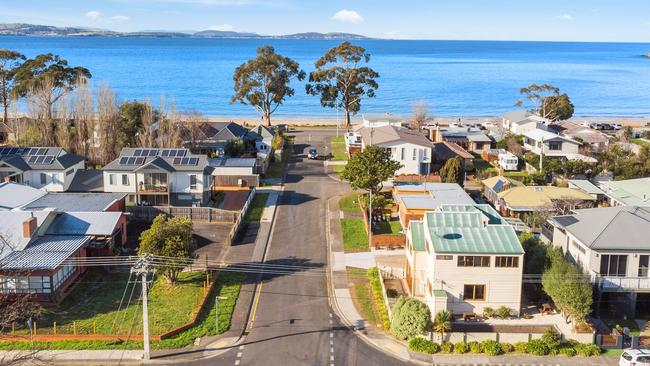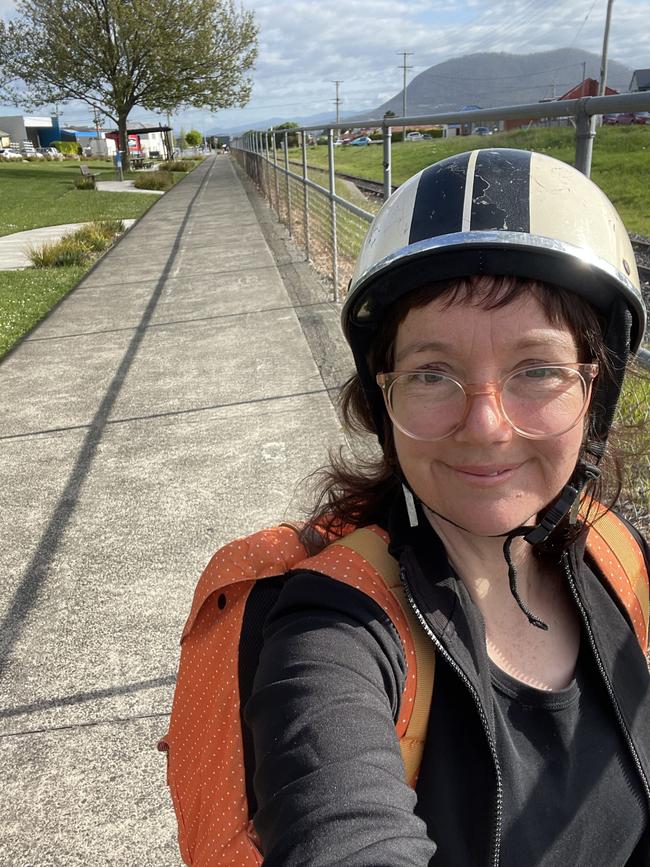Hobart City’s short stay rate decision has the attention of other councils
The Hobart City Council’s decision to charge twice as much in rates for property owners who use entire homes as short stay accommodation has been noticed by councillors from other regions. Why they’ll be watching closely >

Tasmania
Don't miss out on the headlines from Tasmania. Followed categories will be added to My News.
Hobart City Council’s recent decision to double rates for owners of residential short stay accommodation has piqued the interest of elected members in neighbouring councils, who say their regions are also being impacted by the short term rental market.
Last month, the council voted in favour of the differential rating system, which was developed to encourage property owners to keep houses in the long term rental market.
Under the new system, the council will charge 10.42 cents in the dollar of Annual Assessed Value – the estimated amount a property could generate in rental income for a given year – for an entire home used as a short stay accommodation.
The idea has caught the attention of councillors in other municipalities, who are applauding the move.
“Housing is a human right, we all deserve shelter,” Kingborough councillor Gideon Cordover said.

“We need to be looking down a number of different avenues, we shouldn’t be afraid to look at every aspect.
“There’s a need to have more availability of rental stock … When you have hundreds of entire homes used as short stay, it’s certainly a component.”
Mr Cordover said depending on how things went in Hobart City, it could be something to look at in Kingborough.
“If it improves Hobart City Council, I hope we look at it in Kingborough to improve affordability as well,” Mr Cordover said.
At Kingborough Council’s meeting last Monday, council officers said they were considering the decision, as part of a report on short stay accommodation it is preparing.
“We are certainly considering the recent action by Hobart and it will come through in that council report,” Kingborough Council development and community director Samantha Fox said.
“We don’t have a position at this stage but we will be providing information on that.”
Clarence deputy mayor Allison Ritchie successfully moved a motion last year, that the council urge the Local Government Association of Tasmania (LGAT) to investigate residential short stay accommodation.
After a decision late last month, LGAT will develop recommendations for Tasmanian councils to consider.
“What was passed is that LGAT sets up a review committee to look at this from a sector wide point of view,” Ms Ritchie said.

“It’s very hard on individual councils to tackle this separately … There is a lot of difficulty facing the sector around the unregulated nature of the short stay accommodation.”
“We need a unified view on what should happen.”
Ms Ritchie said the Hobart City Council’s recent rates decision was an interesting measure to consider.
“My preference would be to see a statewide approach,” she said.
“If that doesn’t happen you can’t blame councils for acting in any capacity available to them.”
“It’s not an attack on the sector, this is a cry from local government to say we need to regulate this properly and we need to have the tools to do it.”
Ms Ritchie said changes should only apply to those using entire homes as short stay accommodation, not partial use.
In Glenorchy, it was the Hobart City Council’s differential rates for owners of vacant residential land which piqued interest.
“I have hope in the future that the scope for us to implement differential rating which was recently demonstrated by city of Hobart, when they decided to raise rates for vacant land and the income generated offsets the cost for the wider public,” Cr Molly Kendall said at last Monday’s meeting.

“I think there’s great scope for the future … I think there are estimated to be over 600 vacant homes in our area, that’s going to have huge impacts.
“It would have a massive positive impact on the housing crisis we’re facing.”
Short stay “scapegoat”: Why Stayz chief says rates move is unfair
Councils which might consider following the Hobart City Council’s move to charge owners of residential short-stay accommodation twice as much in rates have been discouraged from doing the same thing, with claims short-stay is being used as a “scapegoat” for the problems in the rental market.
Stayz corporate affairs director Eacham Curry said charging owners of short-term rental accommodation (STRA) threatened Tasmania’s tourism sector.
“The imposition of yet another financial burden on homeowners simply because they choose to use STRA to generate extra income, will have a particularly significant detrimental impact on areas which rely on tourism,” Mr Curry said.

“These measures are punitive, the cost of which will most likely be passed on to tourists and further drive up the price of local accommodation options in the middle of a cost-of-living crisis.”
Mr Curry did not believe the rates move would be effective in addressing the housing crisis.
“Penalising homeowners who choose to use STRA platforms through higher council rates or unreasonable permit limits does nothing to ease the housing challenge the nation faces,” he said.
“These homes are mostly owned by families who use them too, so any increase in taxes and limitations on use are highly unlikely to see them become part of the long-term rental inventory.”
He said other factors needed to be addressed to fix the housing crisis.
“These measures fail to address supply, as many whole homes on STRA platforms like Stayz are considered luxury residences and would never be considered “affordable” to those in need,” Mr Curry said.
“A shortage of affordable and government-funded housing options is the real issue which needs to be addressed through streamlined, cheaper development approvals and the release of more land – a responsibility of state and local governments.”





